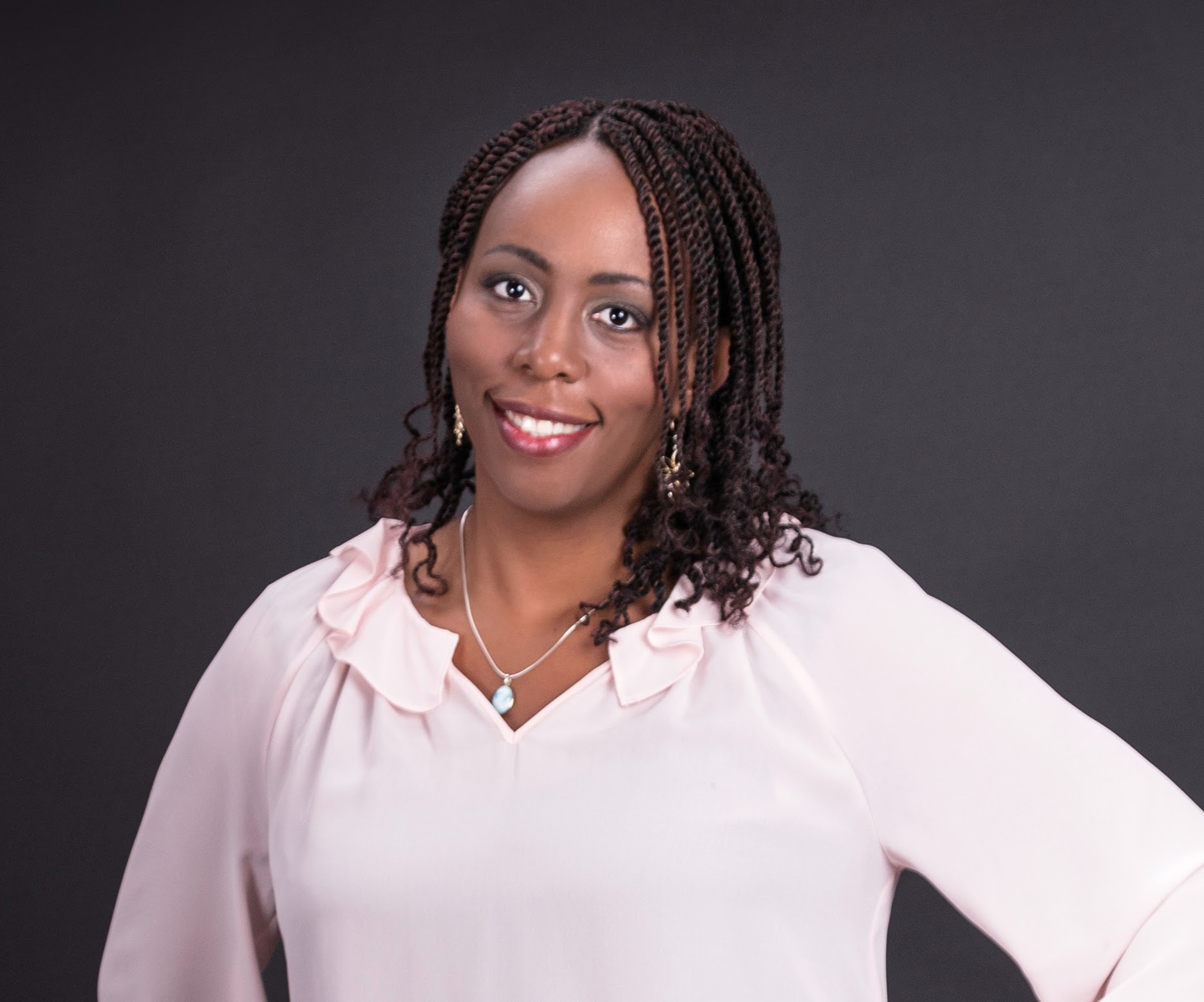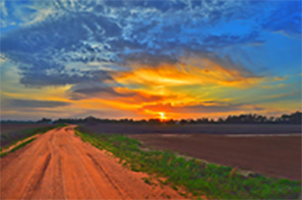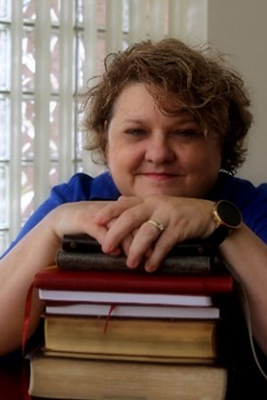Prose and Poetry Writing at Kennesaw State University
KSU has had a long tradition of training creative writers in five genres, including prose and poetry, at both the undergraduate and graduate levels. At the undergraduate level, the English Department offers a Professional Writing Minor which includes many workshop courses. There are also contests and opportunities for travel.
At the graduate level, prose and poetry training is offered through the MA in Professional Writing program (MAPW), which has successfully trained writers for over a quarter of a century. The program has produced a number of highly regarded prose writers and poets who publish in both non-profit and commercial presses.
Writers may choose to study in the full degree program or opt to enter the non-degree Creative Writing Certificate program. Both programs are strongly interdisciplinary, so writers may learn a variety of genres, as well as publication and research skills. The courses are formatted as project-orientated workshops, so that manuscripts may be developed over the course of study. Prose and poetry courses include fiction, creative nonfiction, food and travel writing, biography and poetry courses.
There are also opportunities for guest readings, student organized readings, editorial work on The Headlight Review literary journal, study abroad, and conference travel. The MAPW is a member of the Association of Writers and Programs (AWP), and students receive membership benefits.
Poetry Writing and Its Applications
Poetry writing is among the oldest of literary forms, beginning perhaps as early as language. Ancient peoples composed legends and preserved cultural heritages in poetic form in the oral tradition, and that tradition still lives in our written forms as well as in contemporary forms like spoken-word and in the lyrics of popular songs. In fact, poetry and music have an integral relationship.
But it is not just in the arts that poetry is important. A close study of language is useful to a writer in any field. The best writers of expository writing, fiction writing, and commercial writing, know how to use rhythm, sound, imagery and connotation—the basic elements of poetry writing. As an interdisciplinary program, MAPW recognizes the foundational importance of poetry writing and encourages its study and practice.
Student and Alumni Successes
Meet the Faculty
-
Garrard Conley, MFA
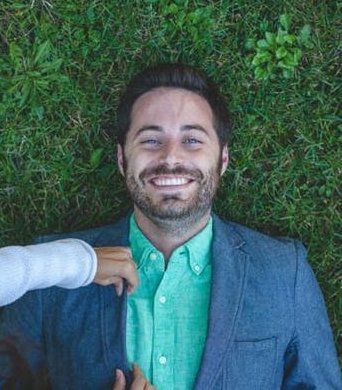 Garrard Conley is the author of the New York Times Best Selling memoir Boy Erased (Penguin 2016), now a major motion picture. Boy Erased was nominated for a Lamdba Literary Award and was featured as a top 2016 nonfiction
book by O Magazine, Buzzfeed Books, and Shelf Awareness, among others. It has now been translated in over a dozen languages. Prof. Conley
is also a producer and creator of the podcast UnErased, which explores the history
of conversion therapy in America through interviews, historical documents, and archive
materials provided by the Mattachine Society of Washington, D.C.
Garrard Conley is the author of the New York Times Best Selling memoir Boy Erased (Penguin 2016), now a major motion picture. Boy Erased was nominated for a Lamdba Literary Award and was featured as a top 2016 nonfiction
book by O Magazine, Buzzfeed Books, and Shelf Awareness, among others. It has now been translated in over a dozen languages. Prof. Conley
is also a producer and creator of the podcast UnErased, which explores the history
of conversion therapy in America through interviews, historical documents, and archive
materials provided by the Mattachine Society of Washington, D.C.He is a graduate of Brooklyn College’s MFA program, where he was a Truman Capote Fellow specializing in fiction. He has also received his MA in English from Auburn University. He has received scholarships from the Bread Loaf, Sewanee, and Elizabeth Kostova Foundation Writers’ Conferences and has taught writing classes for Catapult, Sackett Street Writers Workshop, and the Fine Arts Works Center in Provincetown. He was the memoir instructor for GrubStreet’s 2017-18 Memoir Incubator program. He is also a returned Peace Corps volunteer, having served in Ukraine as an ESL instructor and HIV/AIDS educator.
-
Jeffrey David Greene, MFA
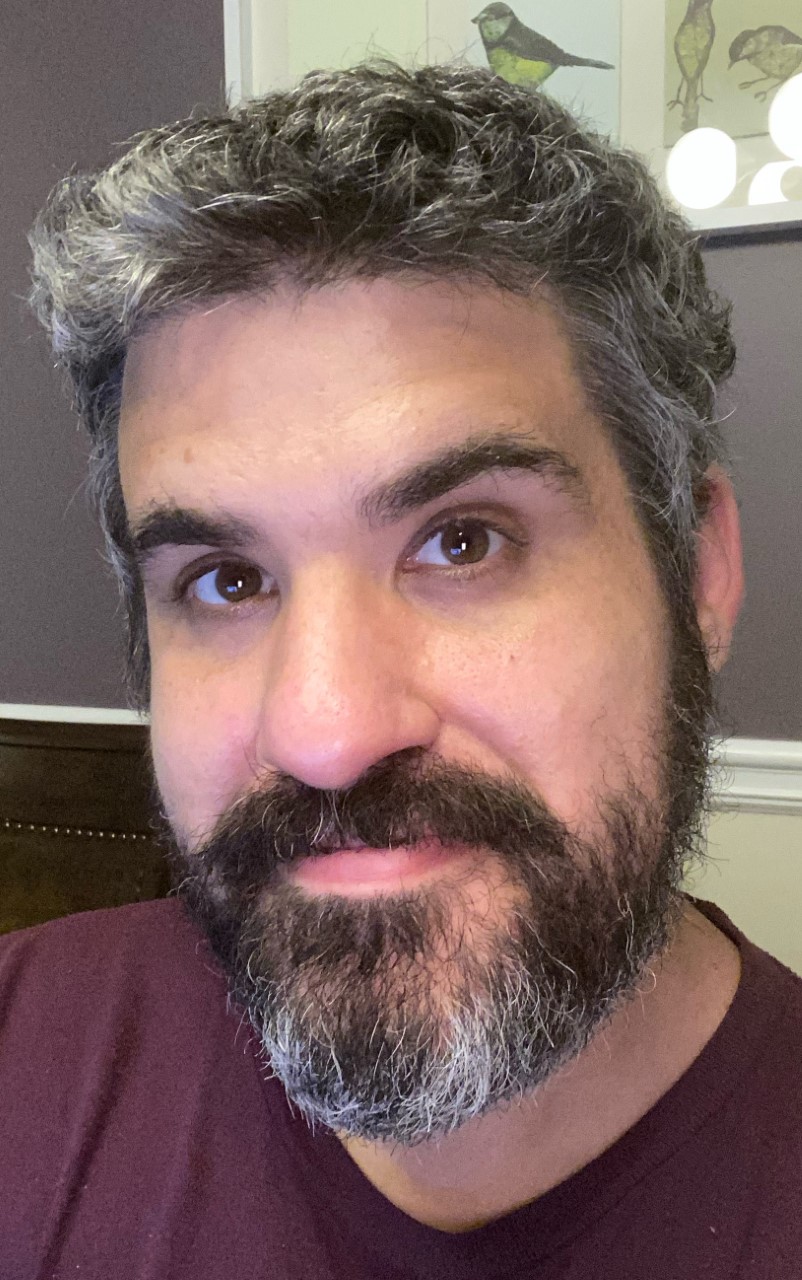 Jeffrey David Greene is an Associate Professor of Creative and Professional Writing
in the Department of English at Kennesaw State University. His scholarly research
and publications focus on game studies, narratology, and gamer culture. He is also
a fiction and nonfiction writer with work that has appeared in Dark Duets (HarperCollins), Night Train Magazine, Gauge Magazine and A Capella Zoo. He teaches courses at the undergraduate level in professional writing, fiction writing,
and digital storytelling. In the MAPW Program, he teaches courses on game studies
and writing for interactive fiction.
Jeffrey David Greene is an Associate Professor of Creative and Professional Writing
in the Department of English at Kennesaw State University. His scholarly research
and publications focus on game studies, narratology, and gamer culture. He is also
a fiction and nonfiction writer with work that has appeared in Dark Duets (HarperCollins), Night Train Magazine, Gauge Magazine and A Capella Zoo. He teaches courses at the undergraduate level in professional writing, fiction writing,
and digital storytelling. In the MAPW Program, he teaches courses on game studies
and writing for interactive fiction. -
Keaton Lamle, MAPW
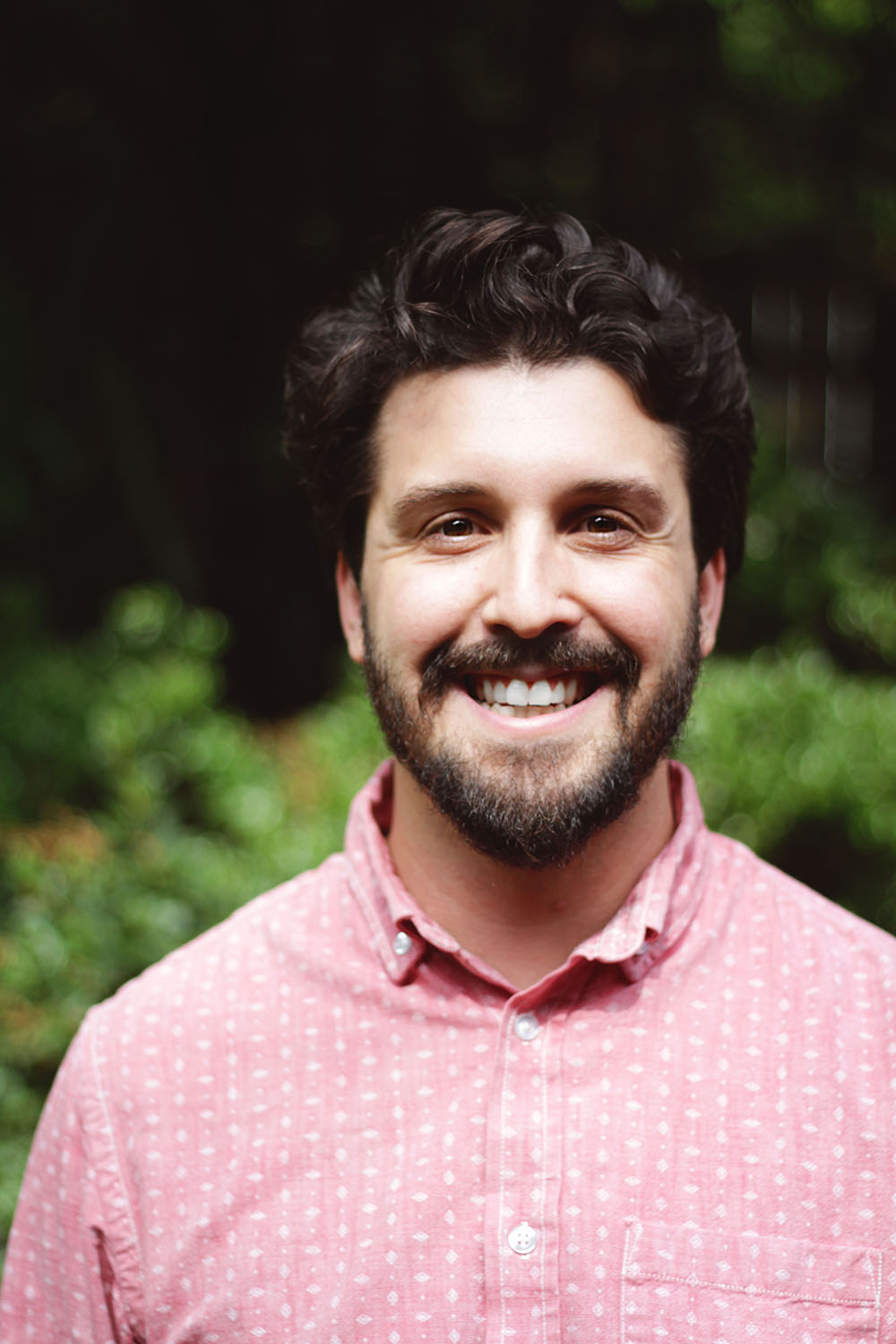 Keaton Lame is a senior lecturer at Kennesaw State University. His writing on food,
art, and culture has been shortlisted by Longreads and the The Best American Food Writing, in addition to appearing in The Guardian, ESPN, and The Bitter Southerner. An MAPW graduate, Keaton has worked as a podcaster, music critic, and professional
copywriter. In addition to creative pursuits, his scholarship on language and rhetoric
can be found in Kairos, College Composition and Communication, and the forthcoming book, Go Online! Reconfiguring Writing Courses for the New, Virtual World (edited by Laura Gray-Rosendale and Steven Rosendale). Professor Lamle leads the
Study Abroad Program in Oaxaca, Mexico.
Keaton Lame is a senior lecturer at Kennesaw State University. His writing on food,
art, and culture has been shortlisted by Longreads and the The Best American Food Writing, in addition to appearing in The Guardian, ESPN, and The Bitter Southerner. An MAPW graduate, Keaton has worked as a podcaster, music critic, and professional
copywriter. In addition to creative pursuits, his scholarship on language and rhetoric
can be found in Kairos, College Composition and Communication, and the forthcoming book, Go Online! Reconfiguring Writing Courses for the New, Virtual World (edited by Laura Gray-Rosendale and Steven Rosendale). Professor Lamle leads the
Study Abroad Program in Oaxaca, Mexico. -
Andrew Plattner, PhD
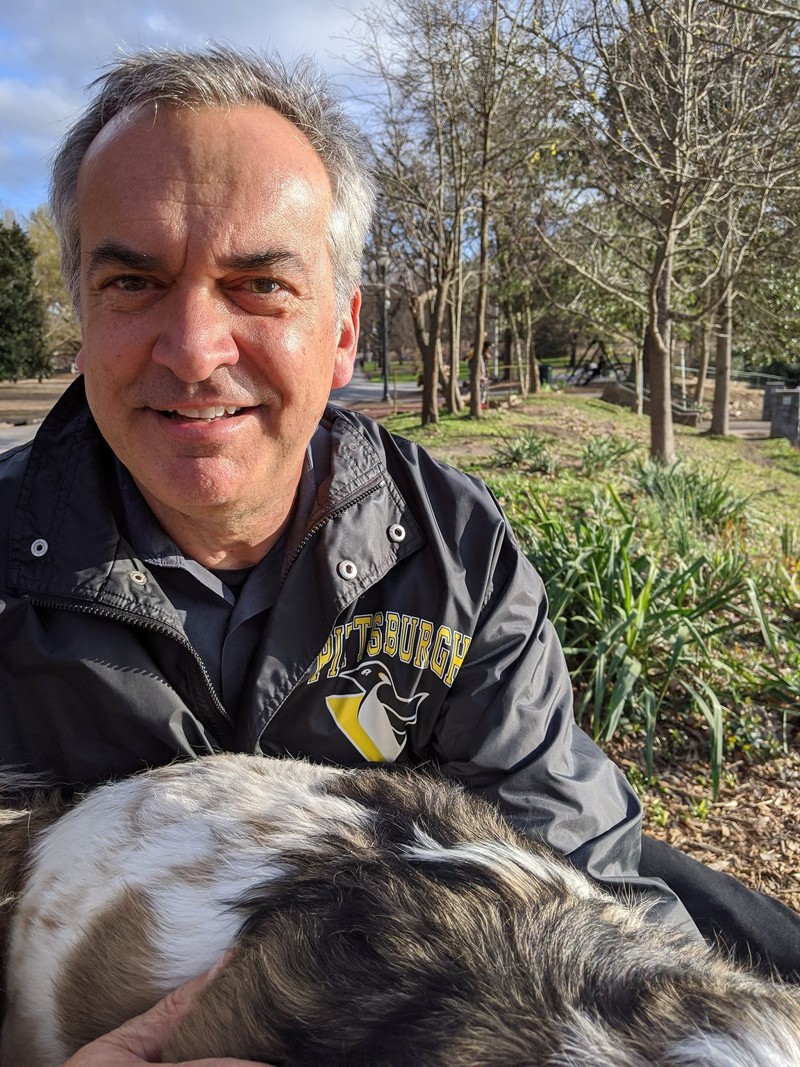 Andy Plattner’s short story collection, Dixie Luck, was published in April 2018 by Mercer University Press. The collection includes Terminal, which won the gold medal in novella writing from the Faulkner Society in 2016. His
other works include the novel Offerings from a Rust Belt Jockey, which won Dzanc Books’ Mid-Career Novel Award and the Castleton-Lyons Book Award. Winter Money, his first story collection, was given the Flannery O’Connor Award from the University
of Georgia Press. His short fiction has been published in journals such as The Paris Review, Sewanee Review, Fiction, The Southern Review and Epoch. He holds a doctorate from the University of Southern Mississippi. His latest collection
of stories, Tower, is forthcoming in 2022.
Andy Plattner’s short story collection, Dixie Luck, was published in April 2018 by Mercer University Press. The collection includes Terminal, which won the gold medal in novella writing from the Faulkner Society in 2016. His
other works include the novel Offerings from a Rust Belt Jockey, which won Dzanc Books’ Mid-Career Novel Award and the Castleton-Lyons Book Award. Winter Money, his first story collection, was given the Flannery O’Connor Award from the University
of Georgia Press. His short fiction has been published in journals such as The Paris Review, Sewanee Review, Fiction, The Southern Review and Epoch. He holds a doctorate from the University of Southern Mississippi. His latest collection
of stories, Tower, is forthcoming in 2022. -
Jenny Sadre-Orafai, MFA
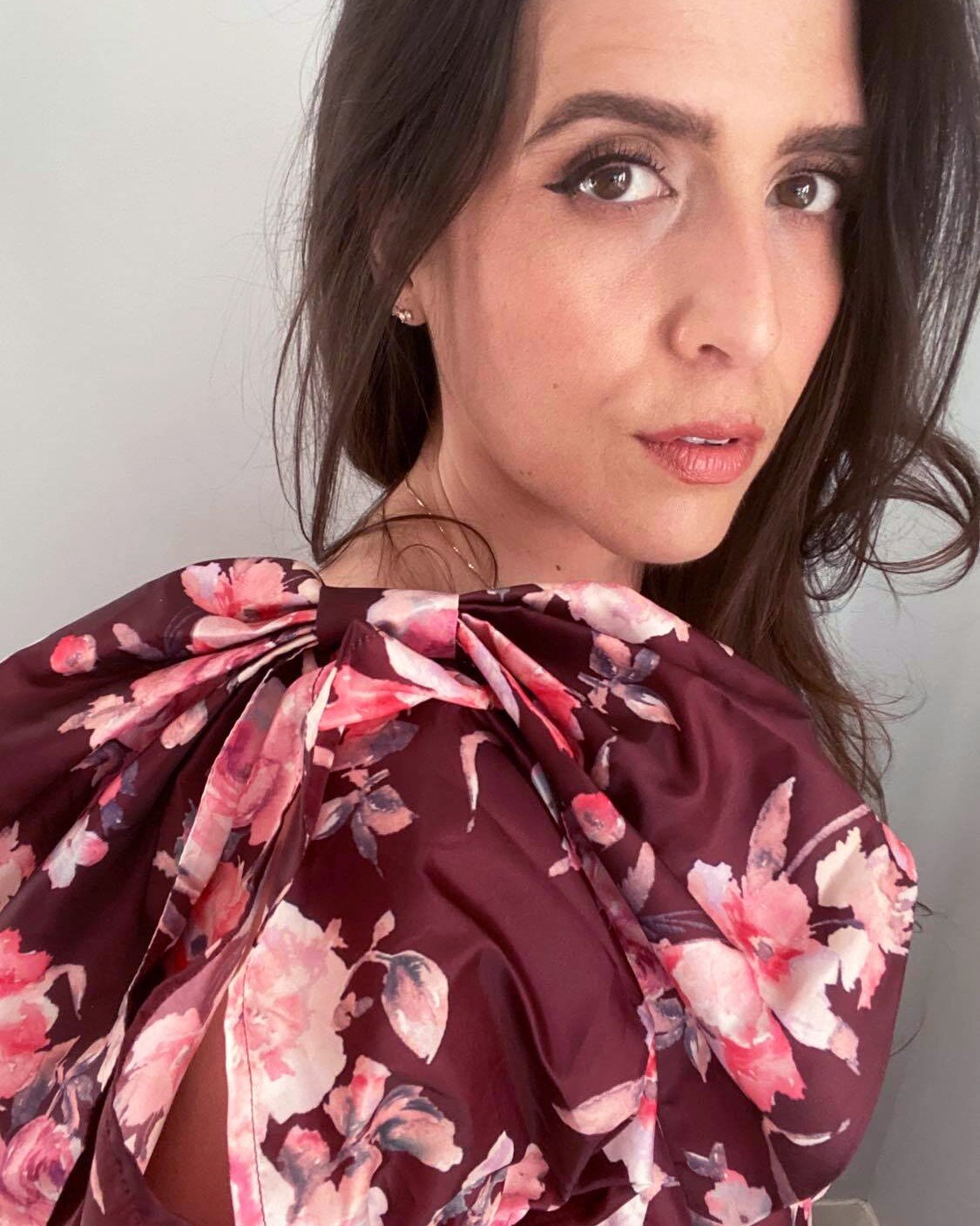 Jenny Sadre-Orafai is the author of Paper, Cotton, Leather and Malak and co-author of Book of Levitations. Her forthcoming poetry collection, Dear Outsiders, was the runner-up in the 2021 Akron Poetry Prize and is forthcoming from the University
of Akron Press in 2023. Sadre-Orafai’s creative nonfiction and short stories have
appeared in VIDA Review, Fourteen Hills, The Rumpus, The Los Angeles Review, and others. Her work explores family and inherited traumas as well as place and
how identity can be shaped by environment. In 2012, she co-founded the literary journal Josephine Quarterly and serves as co-editor. She has been a part of the VIDA Count in the past and is
invested in addressing the severe lack of diversity in publishing. Sadre-Orafai has
taught at KSU since 2002 and has been the Executive Director of the non-profit organization
Georgia Writers since 2017.
Jenny Sadre-Orafai is the author of Paper, Cotton, Leather and Malak and co-author of Book of Levitations. Her forthcoming poetry collection, Dear Outsiders, was the runner-up in the 2021 Akron Poetry Prize and is forthcoming from the University
of Akron Press in 2023. Sadre-Orafai’s creative nonfiction and short stories have
appeared in VIDA Review, Fourteen Hills, The Rumpus, The Los Angeles Review, and others. Her work explores family and inherited traumas as well as place and
how identity can be shaped by environment. In 2012, she co-founded the literary journal Josephine Quarterly and serves as co-editor. She has been a part of the VIDA Count in the past and is
invested in addressing the severe lack of diversity in publishing. Sadre-Orafai has
taught at KSU since 2002 and has been the Executive Director of the non-profit organization
Georgia Writers since 2017. -
Melanie Sumner, MFA
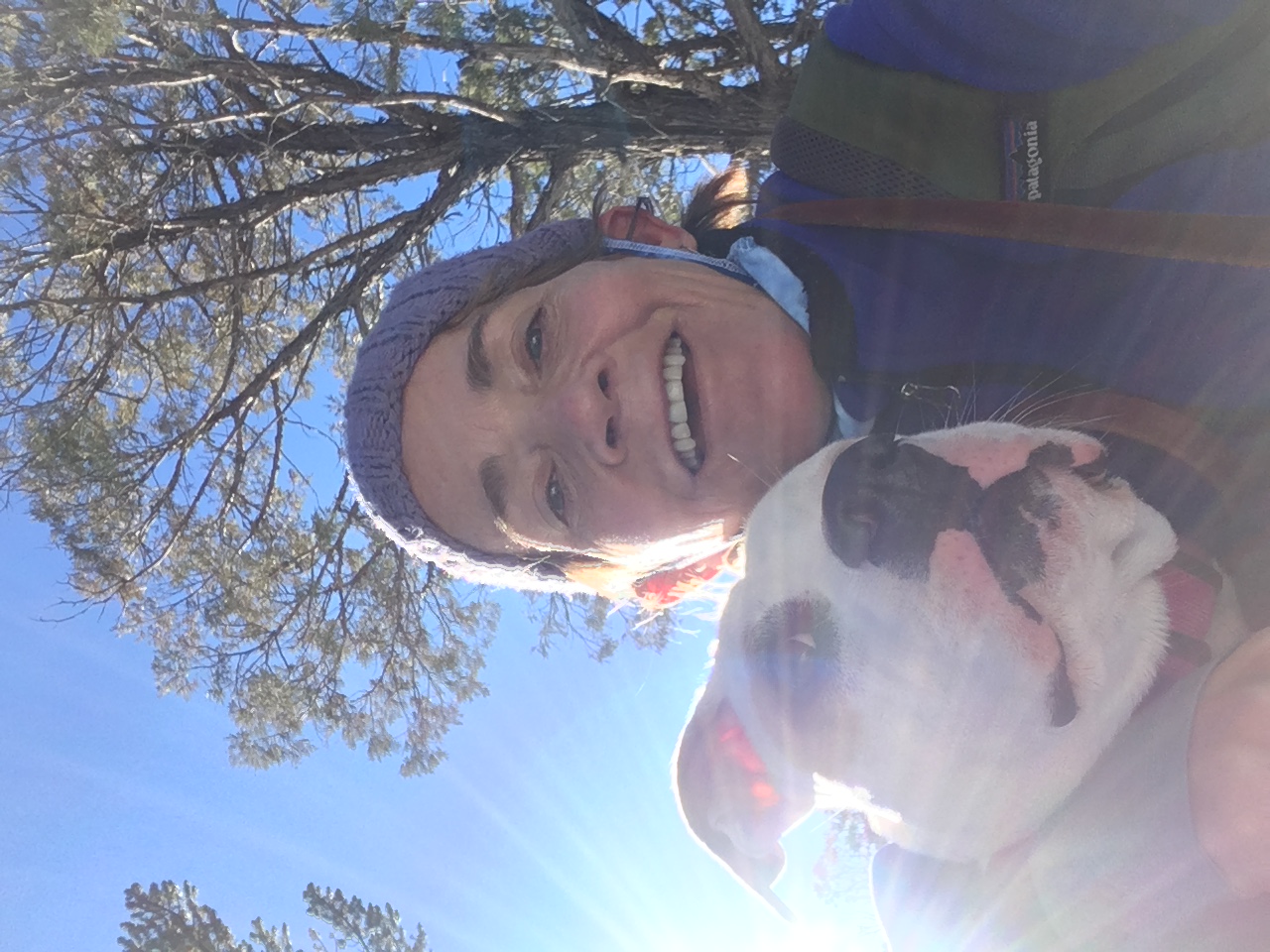 Melanie Sumner is the author of four books of fiction, How to Write a Novel, The Ghost of Milagro Creek (New Mexico Book Awards 2010), The School of Beauty and Charm, and Polite Society, a collection of West African short stories. She is a recipient of numerous awards,
including the Whiting Award, a National Endowment for the Arts grant, and the New
Mexico Book award. Her recent novel manuscript is set in a fictional town in Alaska.
Melanie’s publishing history includes short fiction and creative nonfiction in numerous
journals and anthologies including The New Yorker, Harper's Magazine, The New York Times, and Atlanta Magazine. She has appeared on NPR and Georgia Public Radio. Currently she lives in Rome, Georgia
and teaches at Kennesaw State University.
Melanie Sumner is the author of four books of fiction, How to Write a Novel, The Ghost of Milagro Creek (New Mexico Book Awards 2010), The School of Beauty and Charm, and Polite Society, a collection of West African short stories. She is a recipient of numerous awards,
including the Whiting Award, a National Endowment for the Arts grant, and the New
Mexico Book award. Her recent novel manuscript is set in a fictional town in Alaska.
Melanie’s publishing history includes short fiction and creative nonfiction in numerous
journals and anthologies including The New Yorker, Harper's Magazine, The New York Times, and Atlanta Magazine. She has appeared on NPR and Georgia Public Radio. Currently she lives in Rome, Georgia
and teaches at Kennesaw State University. -
Ralph Tejeda Wilson, PhD
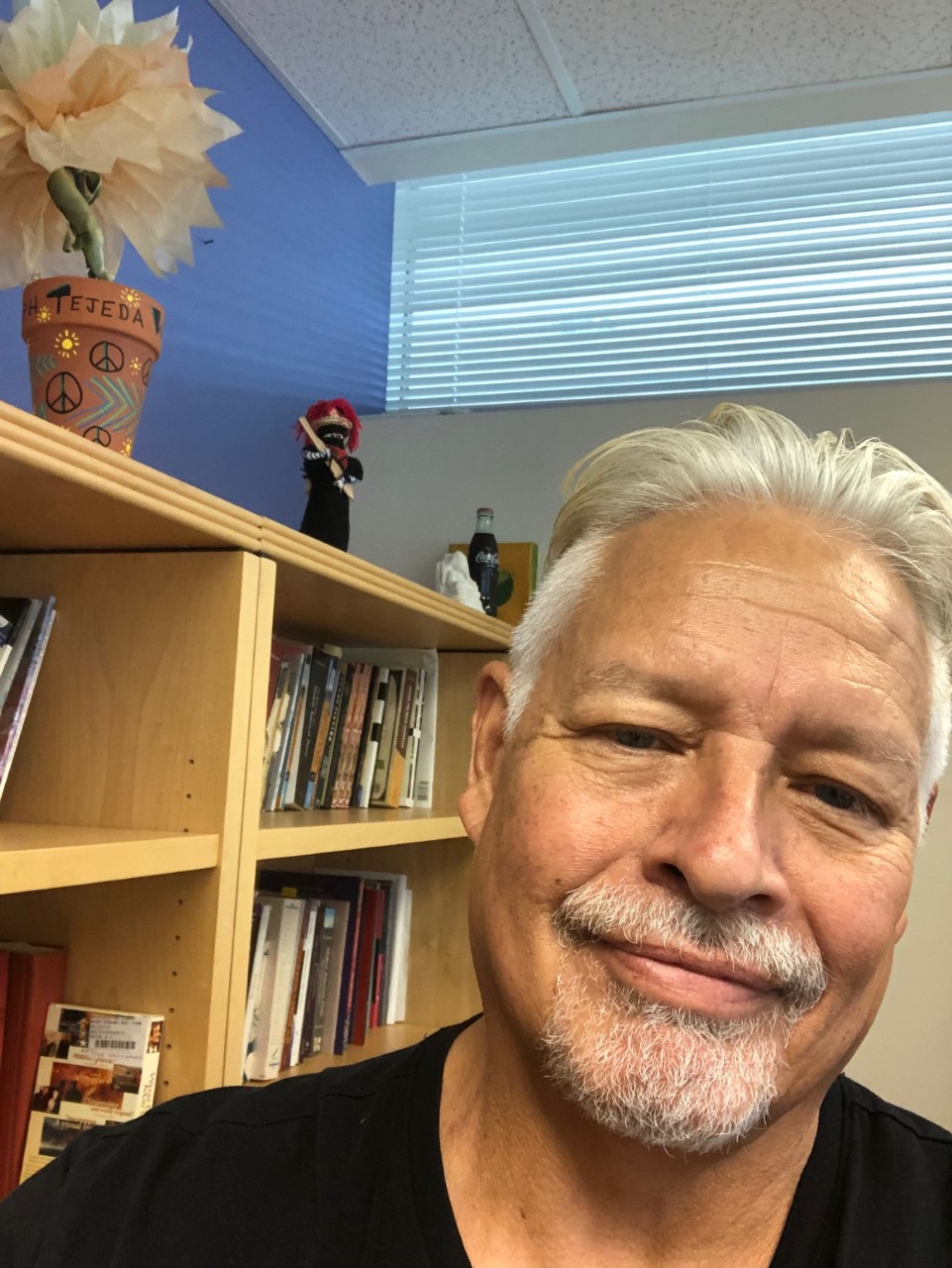 Ralph Tejeda Wilson is a Professor of English at Kennesaw State University and a member
of the graduate faculty of the Master of Arts in Professional Writing program. He
was awarded the Georgia Author of the Year Award for Poetry 2002 for his first book,
A Black Bridge (University of Nevada Press). He has published work in such journals as The New England Review, The Georgia Review, Prairie Schooner, Mid-American Review, North American Review, Spoon River Poetry, Quarterly West, and many others. Dr. Wilson received his Ph. D. in English with a an emphasis in poetry
from the University of Utah where he worked with Pulitzer Prize winning poets, Mark
Strand and Richard Howard, as well as with Jacqueline Osherow and Larry Levis. He
earned his M. A. in English at Kansas State University, where he studied with the
poet/critic, Jonathan Holden.
Ralph Tejeda Wilson is a Professor of English at Kennesaw State University and a member
of the graduate faculty of the Master of Arts in Professional Writing program. He
was awarded the Georgia Author of the Year Award for Poetry 2002 for his first book,
A Black Bridge (University of Nevada Press). He has published work in such journals as The New England Review, The Georgia Review, Prairie Schooner, Mid-American Review, North American Review, Spoon River Poetry, Quarterly West, and many others. Dr. Wilson received his Ph. D. in English with a an emphasis in poetry
from the University of Utah where he worked with Pulitzer Prize winning poets, Mark
Strand and Richard Howard, as well as with Jacqueline Osherow and Larry Levis. He
earned his M. A. in English at Kansas State University, where he studied with the
poet/critic, Jonathan Holden.








